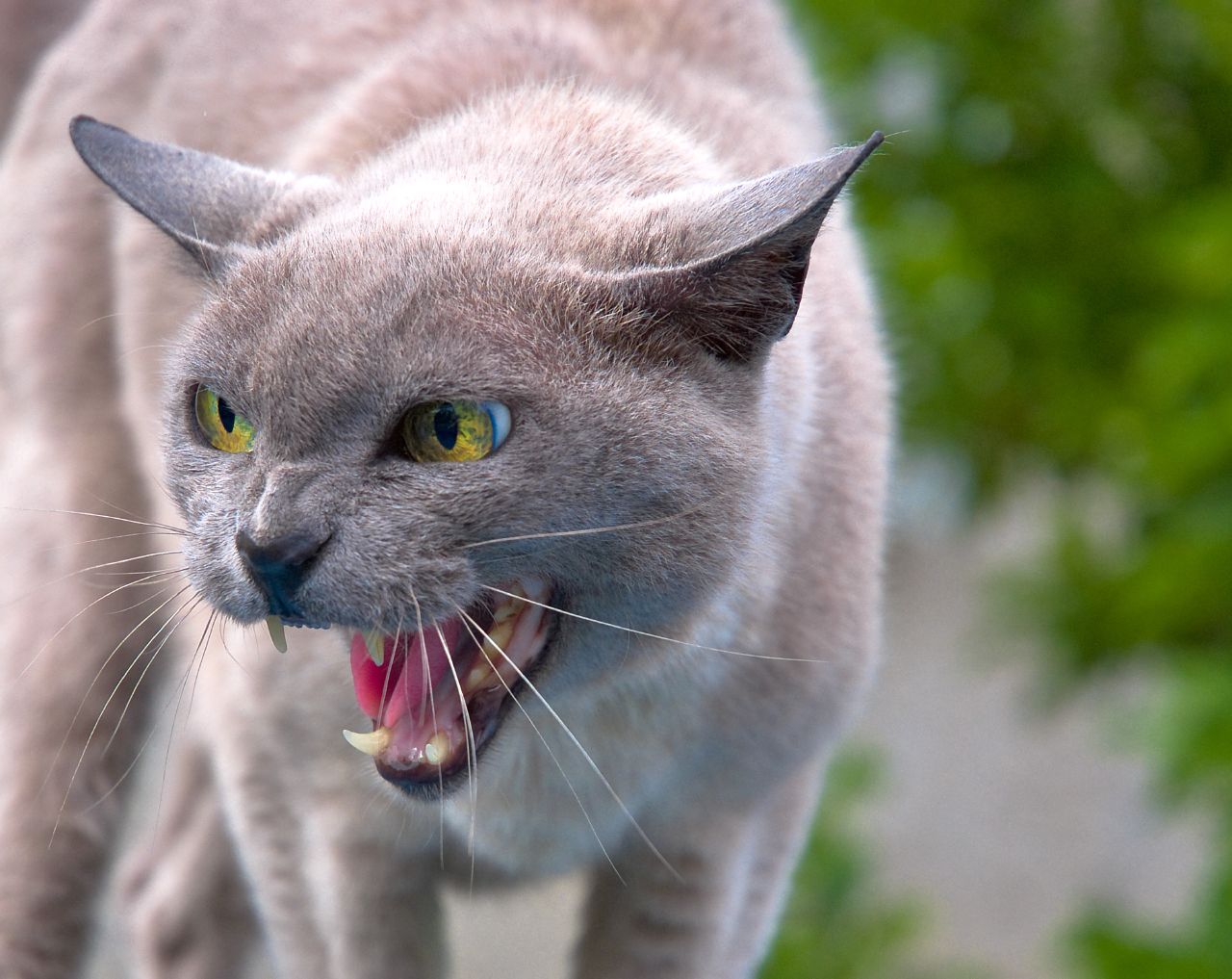Feline hyperesthesia syndrome
Editor-In-Chief: Prab R Tumpati, MD
Obesity, Sleep & Internal medicine
Founder, WikiMD Wellnesspedia &
W8MD medical weight loss NYC and sleep center NYC
| Feline hyperesthesia syndrome | |
|---|---|

| |
| Synonyms | N/A |
| Pronounce | N/A |
| Specialty | N/A |
| Symptoms | Twitching of the skin, vocalization, aggression, self-mutilation |
| Complications | N/A |
| Onset | Typically in adulthood |
| Duration | Chronic |
| Types | N/A |
| Causes | Unknown, possibly neurological or behavioral |
| Risks | Stress, anxiety, genetic predisposition |
| Diagnosis | Clinical examination, exclusion of other conditions |
| Differential diagnosis | Allergies, seizure disorders, dermatitis |
| Prevention | N/A |
| Treatment | Behavioral modification, medication (e.g., anticonvulsants, antidepressants) |
| Medication | N/A |
| Prognosis | Variable, often manageable with treatment |
| Frequency | Rare |
| Deaths | N/A |
Feline hyperesthesia syndrome (FHS), also known as rolling skin disease, is a rare and complex neurological disorder observed in cats. It is characterized by a range of symptoms, including exaggerated grooming behavior, self-mutilation, tail chasing, and sudden mood changes. The cause of FHS is unknown, but it is believed to be related to compulsive disorders, stress, and certain medical conditions.
Symptoms[edit | edit source]
The symptoms of FHS can vary widely between individual cats, but they generally include:
- Excessive grooming: Cats with FHS may groom themselves to the point of causing skin damage or hair loss.
- Self-mutilation: Some cats may bite or chew at their own skin, particularly around the tail and lower back.
- Tail chasing: Cats may chase their own tails, often in a frantic or aggressive manner.
- Mood changes: Cats may display sudden mood changes, such as becoming aggressive or fearful for no apparent reason.
Causes[edit | edit source]
The exact cause of FHS is unknown, but it is believed to be related to a variety of factors, including:
- Compulsive disorders: FHS may be a form of compulsive disorder, similar to obsessive-compulsive disorder in humans.
- Stress: Stressful situations or environments may trigger or exacerbate symptoms of FHS.
- Medical conditions: Certain medical conditions, such as hyperthyroidism or neurological disorders, may contribute to the development of FHS.
Diagnosis[edit | edit source]
Diagnosis of FHS is typically based on the cat's symptoms and behavior. The vet may also perform a physical examination and run tests to rule out other medical conditions that could be causing the symptoms.
Treatment[edit | edit source]
Treatment for FHS typically involves a combination of behavioral therapy and medication. Behavioral therapy may include environmental enrichment and stress reduction techniques. Medications used to treat FHS may include anti-anxiety drugs, antidepressants, and anticonvulsants.
Prognosis[edit | edit source]
With appropriate treatment, most cats with FHS can lead normal, healthy lives. However, it's important for owners to monitor their cat's behavior and seek veterinary care if symptoms worsen or new symptoms develop.
Search WikiMD
Ad.Tired of being Overweight? Try W8MD's NYC physician weight loss.
Semaglutide (Ozempic / Wegovy and Tirzepatide (Mounjaro / Zepbound) available. Call 718 946 5500.
Advertise on WikiMD
|
WikiMD's Wellness Encyclopedia |
| Let Food Be Thy Medicine Medicine Thy Food - Hippocrates |
Translate this page: - East Asian
中文,
日本,
한국어,
South Asian
हिन्दी,
தமிழ்,
తెలుగు,
Urdu,
ಕನ್ನಡ,
Southeast Asian
Indonesian,
Vietnamese,
Thai,
မြန်မာဘာသာ,
বাংলা
European
español,
Deutsch,
français,
Greek,
português do Brasil,
polski,
română,
русский,
Nederlands,
norsk,
svenska,
suomi,
Italian
Middle Eastern & African
عربى,
Turkish,
Persian,
Hebrew,
Afrikaans,
isiZulu,
Kiswahili,
Other
Bulgarian,
Hungarian,
Czech,
Swedish,
മലയാളം,
मराठी,
ਪੰਜਾਬੀ,
ગુજરાતી,
Portuguese,
Ukrainian
Medical Disclaimer: WikiMD is not a substitute for professional medical advice. The information on WikiMD is provided as an information resource only, may be incorrect, outdated or misleading, and is not to be used or relied on for any diagnostic or treatment purposes. Please consult your health care provider before making any healthcare decisions or for guidance about a specific medical condition. WikiMD expressly disclaims responsibility, and shall have no liability, for any damages, loss, injury, or liability whatsoever suffered as a result of your reliance on the information contained in this site. By visiting this site you agree to the foregoing terms and conditions, which may from time to time be changed or supplemented by WikiMD. If you do not agree to the foregoing terms and conditions, you should not enter or use this site. See full disclaimer.
Credits:Most images are courtesy of Wikimedia commons, and templates, categories Wikipedia, licensed under CC BY SA or similar.
Contributors: Prab R. Tumpati, MD

